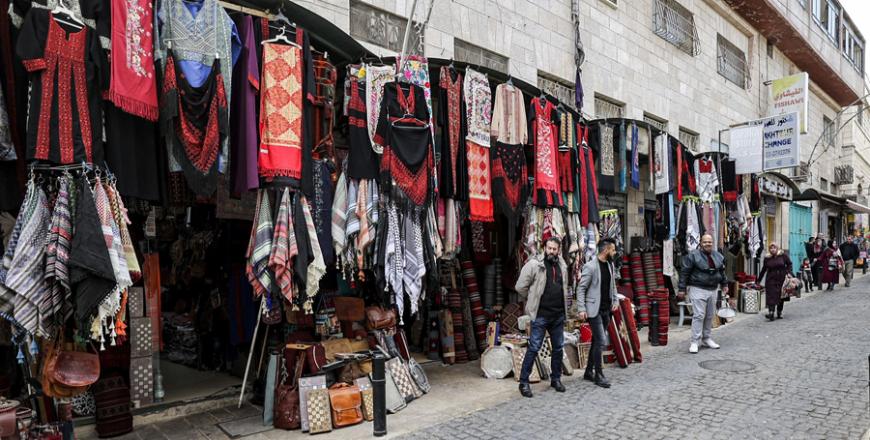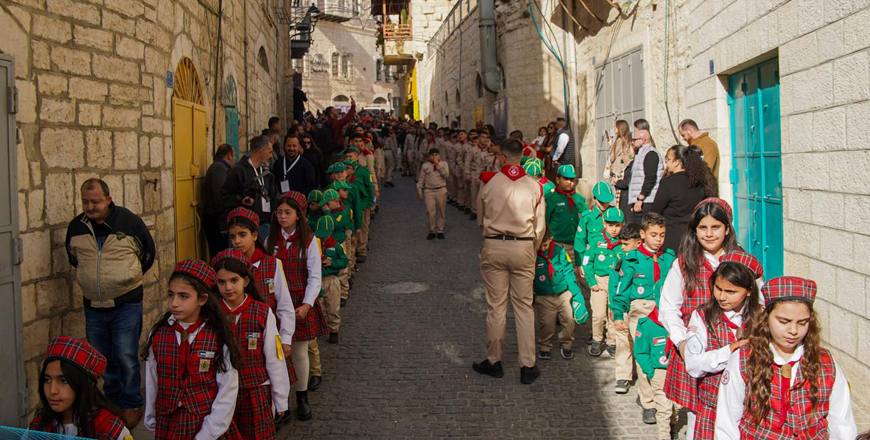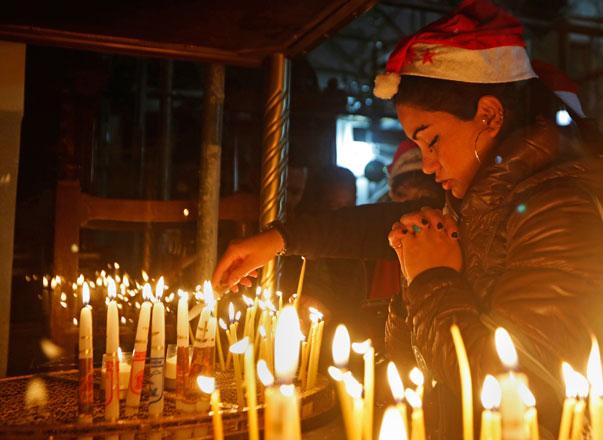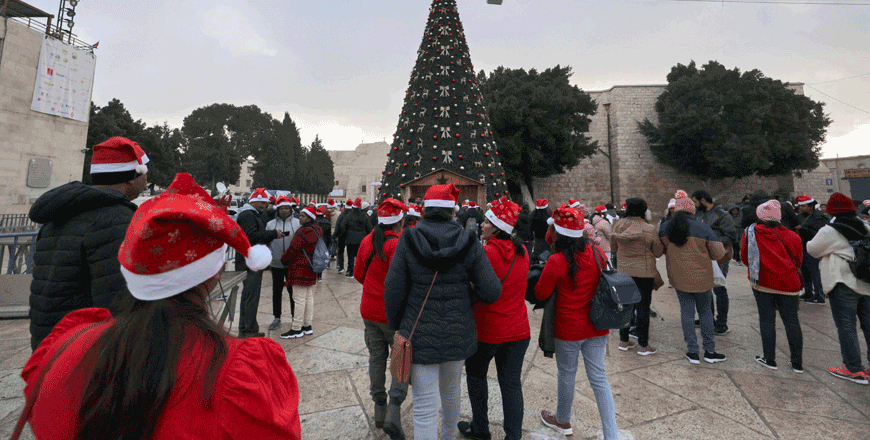You are here
In Bethlehem, Omicron ruins hope for Christmas boom
By AFP - Dec 15,2021 - Last updated at Dec 15,2021

Shopkeepers stand outside their tourist-free venues in the biblical West Bank city of Bethlehem on Wednesday during the otherwise traditionally high tourist season less than two weeks ahead of Christmas (AFP photo)
BETHLEHEM, Palestinian Territories — After collecting dust for nearly two years, the 228 rooms at Bethlehem’s Ararat Hotel were scrubbed last month in anticipation of a post-lockdown Christmas boom, hopes that have again been dashed by the coronavirus.
A large Christmas tree and decorations did little to brighten a deserted lobby.
Like other hotels in Bethlehem, the Ararat has no guests, with the tree offering cheer to no one but the seven out of 105 employees who have not been fired.
“We were expecting 70 per cent occupancy for Christmas but all overseas reservations have been cancelled,” said Augustine Shomali, a manager at the hotel.
The people of Bethlehem — a Palestinian city in the Israeli-occupied West Bank where Christians believe Jesus was born — are used to welcoming an influx of tourists each December.
After a near-total pandemic lockdown last year, Bethlehem began to hope for a joyous Christmas when Israel, which controls all access points to the city, announced in October that it would reopen to foreign tourists on November 1.
But less than a month later, just as hotels were getting a makeover and businesses were replenishing their stocks in anticipation of the holiday season, Israel closed again after a case of the highly transmissible Omicron variant of the virus was discovered.
Now, Shomali said the hotel is relying on the domestic market, with only a dozen rooms booked for a Christmas weekend that is normally fully occupied.
“We are trying to find any point of hope,” he said. “Things are harder now.”
Shomali said he closely followed news about Tel Aviv’s Ben Gurion airport in the hope of a reopening to tourists, but Israeli media have reported that with the spread of Omicron the government is considering tightening restrictions, not loosening them.
This year, like last year, midnight mass in Bethlehem on Christmas Eve will be reserved for a small circle of people by invitation only.
One customer
Before the COVID-19 pandemic, more than three million people visited Bethlehem on average each year.
More than a fifth of the city’s population is employed in tourism, and the jobless rate has risen from 23 per cent to 35 per cent through the pandemic, said Carmen Ghattas, spokeswoman for the municipality.
From her office overlooking Manger Square, where a life-sized Nativity scene has been installed at the foot of a towering tree, Ghattas laments she has no control over whether tourists can enter the city, even as other nations keep their borders open to vaccinated visitors.
“Here, tourists were not given this option. Tourists were just forbidden to enter and this affects our economy so badly,” she said.
The Palestinian National Authority, the civil authority in parts of the West Bank, is mired in an economic crisis and has only offered affected workers in Bethlehem’s hard-hit tourism sector a one-time stipend of 700 shekels ($224).
Israeli hotels and workers, by contrast, have been compensated by the Jewish state.
“There is no work,” said Afram Shaheen, sitting outside his Armenian ceramics shop next to the Church of the Nativity, built on the site where the faithful believe Christ was born in a manger.
“I open the shop, drink a cup of coffee and go home,” he told AFP, smoking a cigarette.
Shaheen said that since Bethlehem became the first Palestinian city to go into lockdown in March 2020, he has had just one customer, a French woman who bought $23 worth of ceramics — his total sales revenue so far during the pandemic.
Like many shop-owners catering to tourists in Bethlehem, Shaheen is selling old merchandise.
“I didn’t order anything new; there is no market, no demand.”
Next door, Nadia Hazboun sold olive wood icons and said the city’s workshops have ground to a halt.
“Many people sold their businesses,” she said, adding that in the absence of any government assistance, owners and employees were facing debt and lawsuits.
“This lockdown is a disaster,” she added, recalling days when she closed her store late at night.
Bethlehem has survived past crises, notably waves of unrest during the Israeli-Palestinian conflict that have also dampened tourism, and Shomali said residents were surviving on hope.
Asked if he believed next Christmas would be better, Shomali answered, “Next Christmas? I have hope for Easter.”
Related Articles
AMMAN — Bethlehem, the sacred birthplace of Jesus Christ, holds profound significance for Christians worldwide.
BETHLEHEM, West Bank — Thousands of pilgrims and tourists from around the world together with locals began Christmas Eve celebrations in Jes
BETHLEHEM, Palestinian Territories — With a giant evergreen tree, colourful balloons in the streets and selfies in the Church of the Nativit



















